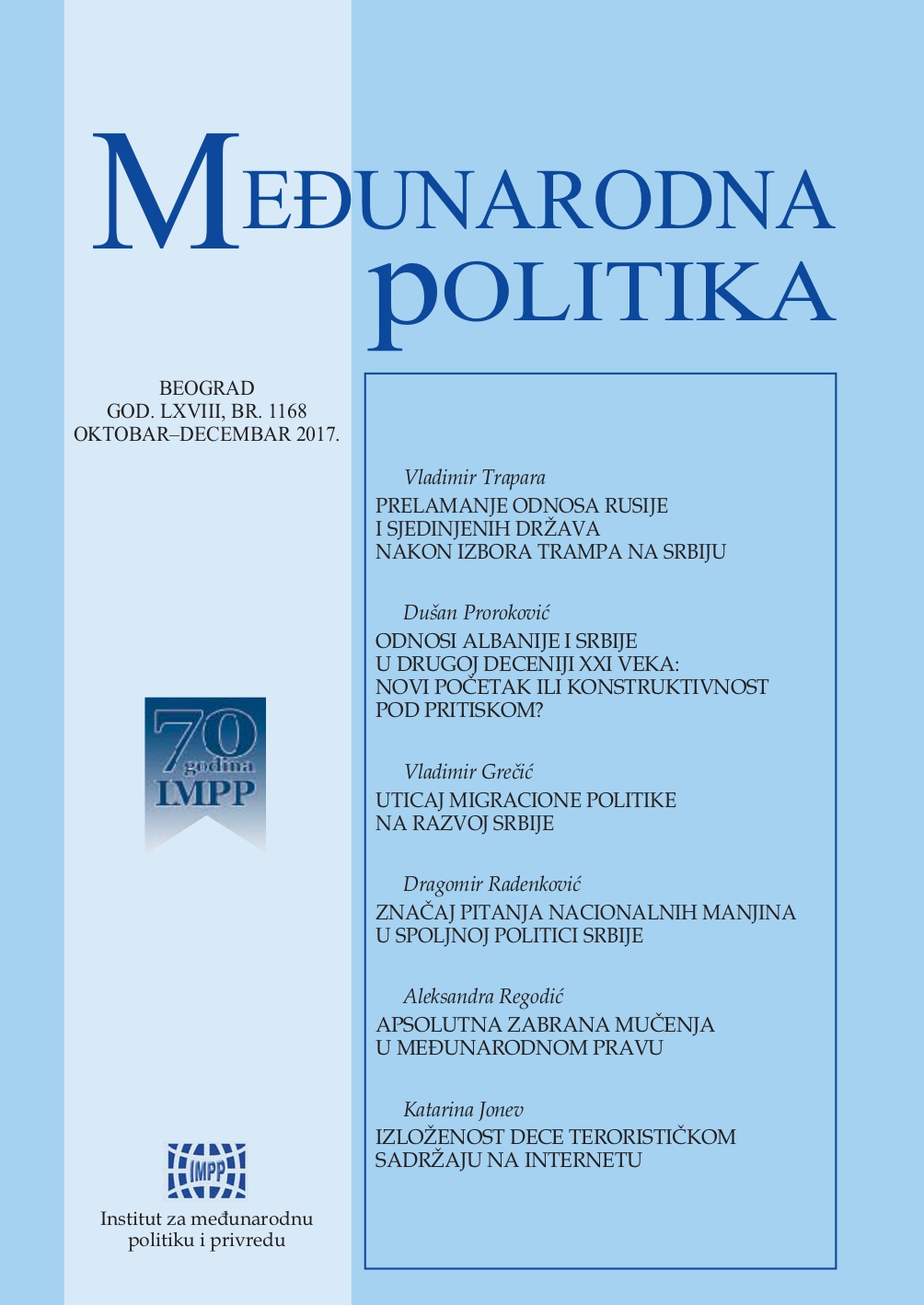Uticaj migracione politike na razvoj Srbije
Migration policy and its impact on development of Republic of Serbia
Author(s): Vladimir GrečićSubject(s): Asylum, Refugees, Migration as Policy-fields
Published by: Институт за међународну политику и привреду
Keywords: migrations; determinants of migration policies; migration theories; migration policy; efficiency of policies; Serbia
Summary/Abstract: Serbia has been faced with the growing depopulation tendency for a quarter of a century now (negative population growth rate is ever increasing and the emigration of young people, especially highly educated and talented people, has become more and more dynamic), and inclusive of weak economic performances and a very modest economic growth, as well. In fact, nowadays, it has been faced with major challenges as it has become the country of immigration, transit country and the country of origin for many people who have had to leave their homes for various reasons. The migration management policy has become an important area of the public60 policies, both on the national and international level. The economic theory of the cross-border migration deals mostly with the following questions: Why do people migrate? Who migrates? What are the implications of both of the countries of origin and a country of destination? Although there is a tendency in the bibliography to distinguish between internal and international (external) migration, there is, in fact, only one economic theory of migration. The Migration is an investment in one's well-being.The efficiency of migration policies is often challenged due to the alleged failure to manage the immigration in a way to protect the country against unwanted migrants and their unproductive effects. However, as a result of the basic methodological and conceptual limitations, the evidence remained unclear. The central question which the author seeks to answer is as follows: How the Serbian migration policy affects the size, direction and nature of migration into and out of the country? In addition, what are the effects of migration and the significance of these effects for the overall development of Serbia? In order to build conceptual clarity, the author draws a distinction between the effects of immigration policy regarding migration volume, geographical mobility, the composition of migration (legal channels and characteristics of the migrants, with particular emphasis to the talents), the timing of migration and return of migration to their countries of origin. Finally, the author suggests some measures and activities that the state authorities should undertake to minimize losses and maximize the gain from the external migration of Serbia
Journal: Међународнa пoлитика
- Issue Year: 68/2017
- Issue No: 1168
- Page Range: 36-61
- Page Count: 26
- Language: Serbian

